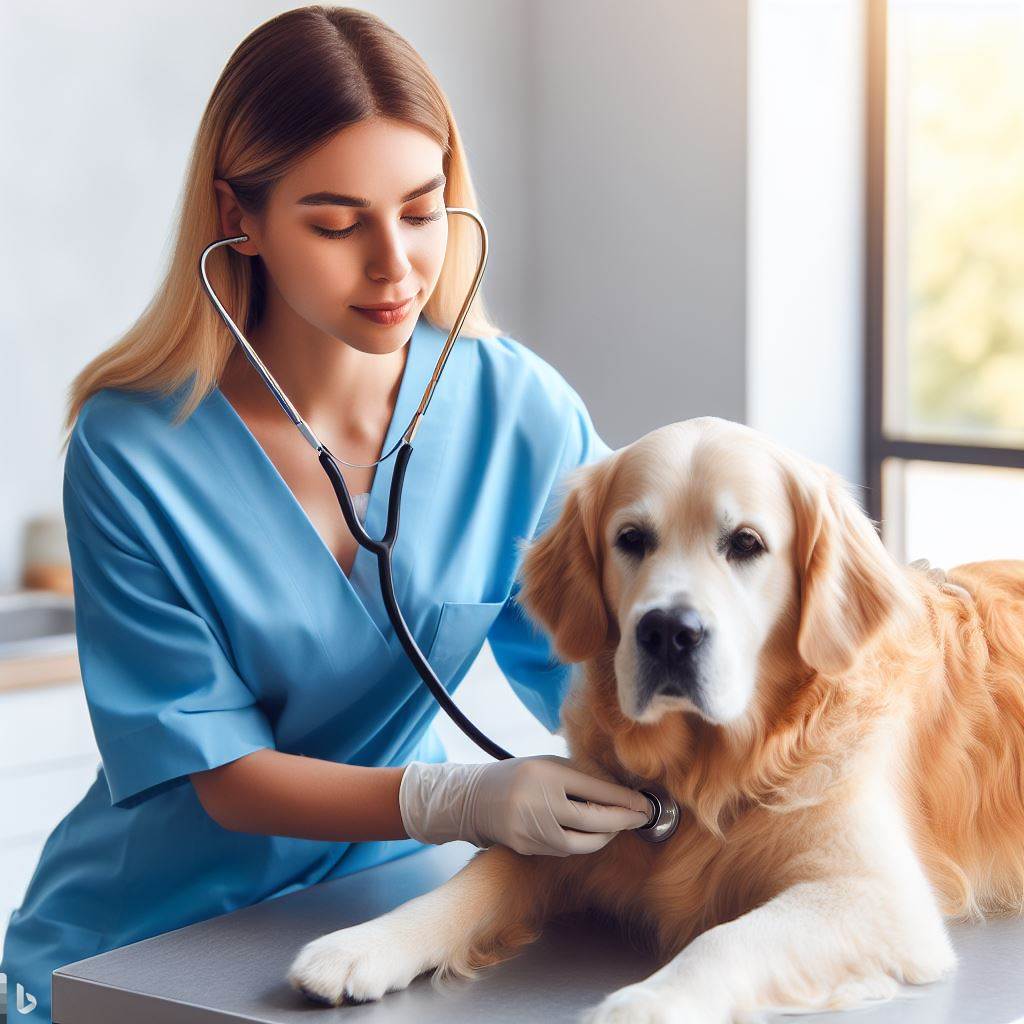Introduction
Addressing Common Misconceptions about the Veterinarian Profession
Misconceptions about the veterinarian profession are surprisingly common and often lead to misunderstandings and false beliefs.
In order to promote a more accurate understanding, it is important to shed light on these misconceptions and provide factual information.
This blog section aims to do just that, highlighting some of the most prevalent misunderstandings about veterinarians and their profession.
By debunking these misconceptions, we hope to provide a clearer picture of what it really means to be a veterinarian and the invaluable role they play in animal healthcare.
Contrary to popular belief, veterinarians are not just pet doctors. Their scope of practice extends beyond domestic animals and includes a wide range of species.
Furthermore, veterinarians are not solely focused on treating sick animals. Preventative care, such as vaccination and regular check-ups, is a significant part of their work.
They also play an essential role in public health and food safety, working to safeguard both animal and human well-being.
Through this section, we will explore various stereotypes and misconceptions associated with veterinarians.
We will provide factual information and real-life examples to showcase the breadth and depth of the profession.
By the end, readers will have a deeper understanding of the challenges and rewards involved in being a veterinarian, as well as the importance of dispelling these common misconceptions.
In the following sections, we will delve into specific misconceptions, providing insights and dispelling myths to offer a more accurate understanding of the veterinarian profession.
Common Misconception 1: Veterinarians only treat cats and dogs
Contrary to this belief, veterinarians also work with a wide range of animals such as birds, reptiles, rodents, and even wildlife.
They specialize in various areas within the field, including equine medicine, exotic animal medicine, and zoo medicine.
Veterinarians play a crucial role in maintaining the health and well-being of all animal species.
They provide medical care, preventive services, and educate pet owners on responsible animal care.
While cats and dogs are commonly treated, veterinarians are equipped to handle the needs of diverse animals.
Avian veterinarians, for example, specialize in treating birds such as parrots, hawks, and even poultry.
They are knowledgeable about bird anatomy, diseases, and behaviors. Reptile veterinarians are well-versed in handling and treating reptiles like snakes, lizards, and turtles.
They understand the unique requirements of these animals, including appropriate habitats and nutrition.
Rodent veterinarians focus on the health and welfare of small animals like hamsters, guinea pigs, and rabbits.
They provide preventive care, treat illnesses, and advise on proper hygiene and housing.
Wildlife veterinarians, on the other hand, work with injured or sick wild animals that need medical attention and rehabilitation.
These professionals contribute to the conservation of threatened species and the overall balance of ecosystems.
Equine veterinarians specialize in caring for horses, addressing their specific medical needs and offering preventive measures.
Importance of veterinarians in maintaining the health and well-being of all animal species
They play a vital role in ensuring the health and performance of horses involved in sports, farming, or leisure.
Transform Your Career Today
Unlock a personalized career strategy that drives real results. Get tailored advice and a roadmap designed just for you.
Start NowExotic animal veterinarians deal with unique and unconventional pets such as hedgehogs, sugar gliders, and ferrets.
They provide comprehensive medical care, nutrition advice, and behavioral management strategies.
Zoo veterinarians work in zoos, aquariums, and wildlife parks, caring for animals in captivity.
They monitor the health of a diverse range of species and collaborate with zookeepers and conservationists.
Veterinarians also contribute to public health by preventing the spread of zoonotic diseases.
These are diseases that can be transmitted between animals and humans, such as rabies or salmonella.
By vaccinating animals, conducting health screenings, and implementing hygiene protocols, veterinarians safeguard both animal and human populations.
Veterinarians are not limited to treating cats and dogs. They work with a wide range of animals and specialize in various areas within the veterinary field.
Their role is essential in maintaining the health and well-being of all animal species, including pets, livestock, exotic animals, and wildlife.
We should appreciate the breadth of their expertise and the significant impact they have on animal welfare and public health.
Read: Technological Advancements Shaping Nursing in the USA
Common Misconception 2: Veterinarians just prescribe medications
When it comes to the veterinary profession, there are several common misconceptions that people may have. One of these misconceptions is the belief that veterinarians only prescribe medications.
However, this is far from the truth. Veterinarians are trained in various aspects of animal care and provide a comprehensive approach to ensure the well-being of animals.
Contrary to popular belief, veterinarians do much more than just prescribe medications.
Their training includes diagnosing illnesses, performing surgeries, providing preventive care, offering nutritional advice, and attending to behavioral issues.
In essence, they take a holistic approach to veterinary medicine that encompasses all aspects of animal health.
Dispelling the Misconception
It is vital to understand that veterinarians possess extensive knowledge in diagnosing illnesses. They are skilled in conducting physical examinations, running diagnostic tests, and interpreting the results.
By doing so, they can accurately identify health issues in animals and formulate appropriate treatment plans.
In addition to diagnosing illnesses, veterinarians also have the expertise to perform surgeries.
Whether it is a routine procedure like spaying or neutering or a more complex operation, veterinarians are trained to carry out these procedures safely and effectively.
Surgeries are an integral part of veterinary medicine, and veterinarians play a crucial role in ensuring the success of these procedures.
Preventive care is another essential aspect of veterinary medicine.
Veterinarians emphasize the importance of regular check-ups, vaccinations, and parasite control to prevent illnesses and maintain optimal health in animals.
By providing preventive care, they can detect and address potential health issues before they become more serious and require extensive treatment.
Moreover, veterinarians offer valuable nutritional advice to pet owners.
They can recommend diets that are tailored to the specific needs of individual animals, whether it is for weight management, addressing dietary allergies, or supporting certain medical conditions.
This personalized approach to nutrition ensures that animals receive the right nutrients to maintain their overall health and well-being.
Additionally, veterinarians address behavioral issues in animals. They are trained to recognize and understand animal behavior patterns and can provide guidance on how to modify or manage problematic behaviors.
By doing so, they enhance the bond between pets and their owners and ensure a harmonious living environment.
The Importance of a Holistic Approach
It is crucial to highlight the importance of a holistic approach to veterinary medicine that goes beyond medication prescriptions.
While medications can be an essential part of treatment plans, they are not the only aspect that needs to be considered.
A holistic approach focuses on the overall well-being of the animal, taking into account their physical, emotional, and behavioral needs.
Transform Your Career Today
Unlock a personalized career strategy that drives real results. Get tailored advice and a roadmap designed just for you.
Start NowBy adopting a holistic approach, veterinarians can address the root causes of illnesses and not just manage the symptoms.
This approach may involve incorporating alternative therapies, such as acupuncture or chiropractic care, alongside conventional treatments.
It acknowledges that each animal is unique and requires personalized care to achieve optimal health.
In general, the misconception that veterinarians solely prescribe medications is far from accurate.
They play a crucial role in animal care by diagnosing illnesses, performing surgeries, providing preventive care, offering nutritional advice, and addressing behavioral issues.
Their holistic approach to veterinary medicine ensures that animals receive comprehensive care that goes beyond medication prescriptions.
Read: US Nursing Licenses: Steps to Certification & Renewal

Delve into the Subject: ADA’s Role in Shaping American Dentistry Today
Common Misconception 3: Veterinarians have an easy job
One common misconception about the veterinarian profession is that it is an easy and stress-free job. Many people believe that being a vet only involves cuddling with cute animals all day long.
However, this belief couldn’t be further from the truth.
Being a veterinarian is a demanding and emotionally challenging profession. Vets have to deal with animal suffering and make difficult decisions on a daily basis.
They are responsible for the well-being and sometimes the life and death of the animals under their care.
Working long hours is also a reality for veterinarians. Animals don’t adhere to regular office hours, and emergencies can happen at any time.
Vets often have to sacrifice their personal time and even sleep to provide urgent care to animals in need.
The Demanding Nature of the Job
Veterinarians face a wide range of challenges that make their job anything but easy. They have to diagnose and treat various illnesses and injuries, sometimes dealing with distressed and aggressive animals. This requires both knowledge and physical stamina.
Besides the physical demands, the emotional toll can be overwhelming. Veterinarians have to witness the suffering of animals, sometimes having to euthanize them in order to end their pain.
This can take a significant emotional toll and can be a source of stress and sadness.
Additionally, veterinarians often have to communicate bad news to pet owners. Delivering diagnoses of serious illnesses or discussing end-of-life decisions is never easy.
Vets need to navigate these difficult conversations with empathy and compassion.
The Importance of Compassion, Resilience, and Work Ethic
Compassion is a core value in the veterinarian profession. Vets must genuinely care about the animals they treat and strive to alleviate their suffering.
It takes a special kind of person to handle emotional situations with empathy and understanding.
Veterinarians also need to be resilient. They face challenging cases and setbacks. They need to be able to bounce back from difficult situations and continue providing quality care to their patients.
A strong work ethic is crucial in this profession. Veterinarians are responsible for many lives and need to be dedicated to their work.
They must stay up-to-date with the latest research, techniques, and treatments to deliver the best possible care to animals.
Vets face demanding and emotionally challenging aspects, such as dealing with animal suffering, making difficult decisions, and working long hours.
Next time you visit a veterinarian, remember the hard work and sacrifice they put into their job to ensure the well-being of our beloved pets.
Showing appreciation for their efforts can go a long way in acknowledging their challenging profession.
Read: Comparing the RN, NP, and LPN Roles: What’s the Difference?
Common Misconception 4: Veterinarians only work in private clinics
Many people believe that veterinarians only work in private clinics, but the truth is that they can work in a variety of settings. Here are some of the different places where veterinarians can practice their profession:
- Private Clinics: Private clinics are indeed one of the most common places where veterinarians work. These clinics provide veterinary care to companion animals such as cats and dogs.
- Animal Hospitals: Animal hospitals are similar to private clinics but offer more specialized care for animals. They usually have a wider range of diagnostic and treatment options available.
- Research Facilities: Veterinarians can also work in research facilities, where they contribute to advancements in animal health and medicine. They may be involved in conducting experiments, studying diseases, and developing new treatments.
- Universities: Universities often have veterinary schools or departments where veterinarians can teach and conduct research. They play a crucial role in educating the next generation of veterinarians.
- Farms: Veterinarians who work in farm settings are responsible for the health and welfare of livestock animals. They provide preventive care, treat diseases, and advise farmers on best practices for animal husbandry.
- Zoos: Zoos employ veterinarians to care for the health and well-being of the animals living in their facilities. They may perform medical procedures, monitor the animals’ nutrition, and manage their reproductive health.
- Government Agencies: Veterinarians can work for government agencies, such as the Department of Agriculture or the Food and Drug Administration. They ensure that animals destined for consumption or used for research comply with health and safety regulations.
- Non-profit Organizations: Many non-profit organizations, such as animal shelters and rescue groups, employ veterinarians to provide medical care to animals in need. They may perform surgeries, administer vaccinations, and treat injuries.
As you can see, veterinarians have a broad range of career opportunities, and their roles and responsibilities vary depending on the setting.
They may diagnose and treat illnesses, perform surgeries, conduct research, educate the public, or advocate for animal welfare.
The work they do is not limited to just one type of facility or one type of animal. Veterinarians make meaningful contributions to animal health and well-being in a variety of ways.
Read: The Influence of Nursing Unions in the United States
Delve into the Subject: The Role of PT Assistants and Aides in the US Setting
Conclusion
In summary, debunking misconceptions surrounding the veterinary profession is pivotal. Understanding the diverse roles, from comprehensive animal care to public health contributions, is crucial.
Breaking these misconceptions fosters an appreciation for the veterinary field’s vital role in animal welfare and societal health.
I encourage readers to seek information and engage in open dialogues to shatter these misconceptions.
Facilitating a deeper understanding of the dedication and multifaceted expertise within the veterinary profession.
Embracing a more accurate perception of veterinarians promotes recognition of their significance in not just pet care but also in broader aspects such as public health, research, and animal welfare.
It’s essential to move beyond misconceptions, acknowledging the diverse expertise and essential contributions of veterinarians in society.
Transform Your Career Today
Unlock a personalized career strategy that drives real results. Get tailored advice and a roadmap designed just for you.
Start Now[E-Books for Sale]
The Big Book of 500 High-Paying Jobs in America: Unlock Your Earning Potential
$19.99 • 500 High-Paying Jobs • 330 pages
Explore 500 high-paying jobs in America and learn how to boost your career, earn more, and achieve success!
See All 500 High-Paying Jobs of this E-Book
1001 Professions Without a Degree: High-Paying American Jobs You Can Start Now
$19.99 • 1001 Professions Without a Degree • 174 pages
Discover 1001 high-paying jobs without a degree! Unlock career tips, skills, and success strategies for just $19.99!




